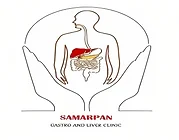Liver Cirrhosis Treatment

Liver Cirrhosis Treatment at Samarpan Gastro and Liver Clinic, Varanasi
At Samarpan Gastro and Liver Clinic in Varanasi, we specialize in the comprehensive care, diagnosis, and treatment of liver cirrhosis, a serious liver disease that occurs when the liver becomes severely scarred. Under the expert guidance of Dr. Shekhar Puri, our clinic provides a personalized, patient-centered approach to managing liver cirrhosis, helping patients prevent further liver damage and improve their quality of life.
What is Liver Cirrhosis?
Liver cirrhosis is the final stage of scarring (fibrosis) of the liver caused by long-term liver damage. This condition is often the result of chronic liver diseases such as hepatitis B or C, alcohol abuse, non-alcoholic fatty liver disease (NAFLD), or genetic conditions. As cirrhosis progresses, healthy liver tissue is replaced by scar tissue, making it difficult for the liver to function properly.
Symptoms of liver cirrhosis may include fatigue, swelling in the abdomen and legs, yellowing of the skin (jaundice), and easy bruising. In the advanced stages, cirrhosis can lead to life-threatening complications like liver failure, portal hypertension, and liver cancer.
Our Approach to Liver Cirrhosis Treatment in Varanasi
Comprehensive Diagnosis: Early detection is key to managing liver cirrhosis. We start with a thorough diagnostic assessment, including blood tests, liver function tests, ultrasound, CT scans, and liver biopsy, to evaluate the extent of liver damage and determine the underlying cause of cirrhosis.
Lifestyle Modifications and Diet: Dr. Shekhar Puri emphasizes the importance of lifestyle changes to manage cirrhosis effectively. We provide personalized dietary plans to reduce strain on the liver, focusing on low-salt diets to manage fluid retention, protein control for patients with complications, and nutrient-rich meals to improve overall liver function.
Management of Underlying Causes: If cirrhosis is caused by conditions like hepatitis, alcoholism, or fatty liver disease, we focus on treating the root cause through antiviral medications, alcohol reduction programs, or weight management strategies. Our goal is to prevent further liver damage and improve liver health.
Medications to Control Symptoms: For patients experiencing complications like portal hypertension, variceal bleeding, or ascites (fluid retention), we prescribe medications to manage symptoms and slow disease progression. These may include diuretics, beta-blockers, or lactulose for managing hepatic encephalopathy.
Regular Monitoring and Early Intervention: Liver cirrhosis requires ongoing monitoring to assess the progression of the disease. We conduct regular follow-ups to track liver function, monitor for complications like liver cancer, and adjust treatment plans as needed to optimize care.
Liver Transplantation: In advanced stages of cirrhosis, where the liver can no longer function properly, a liver transplant may be considered. We work closely with transplant specialists to evaluate candidates for liver transplantation and provide support throughout the process.

